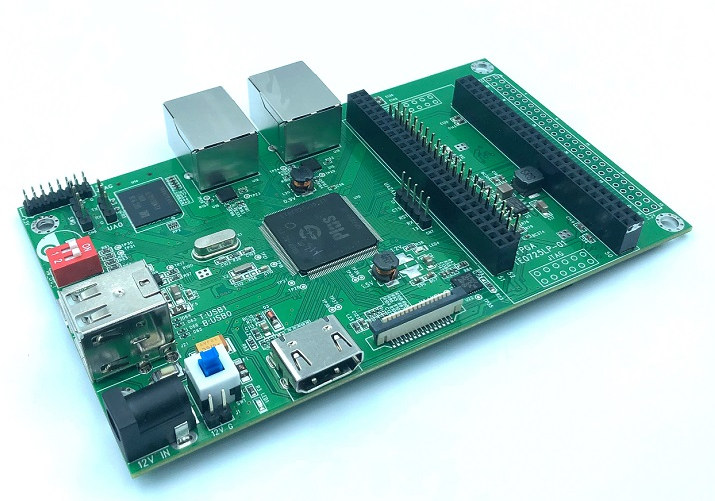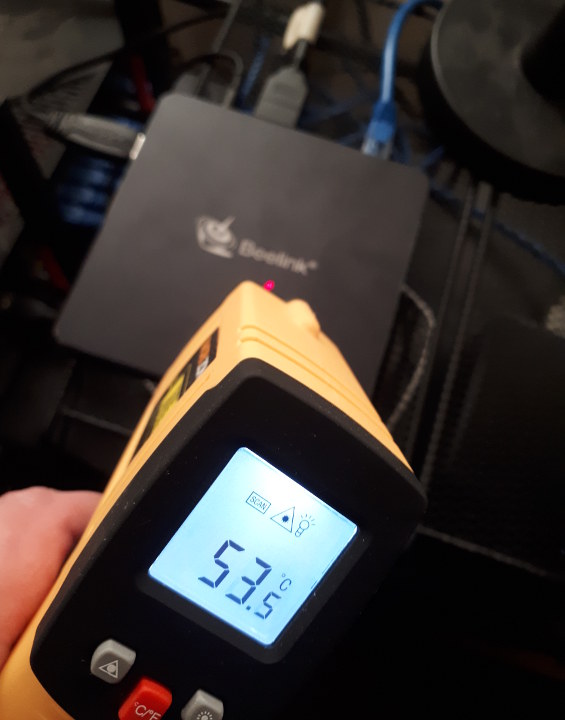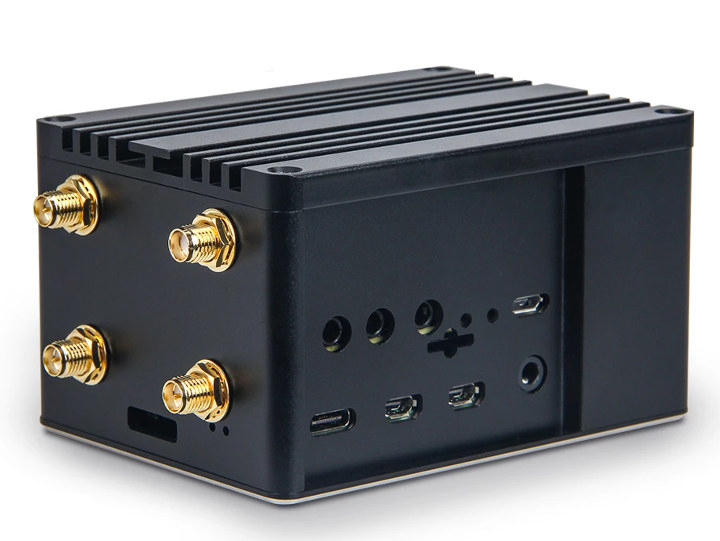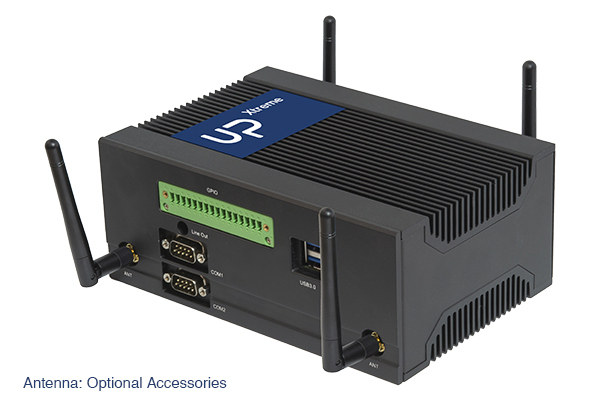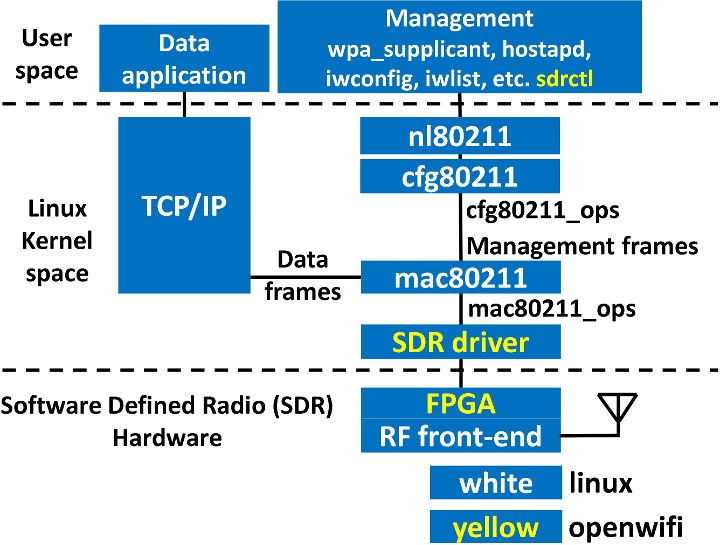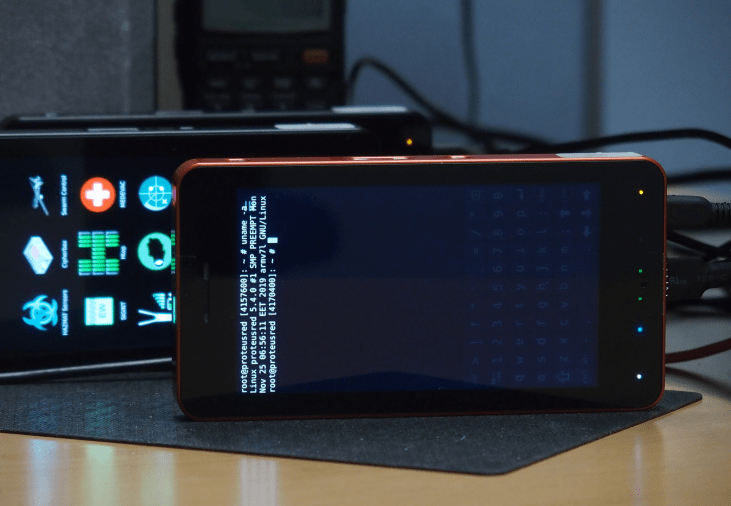We wrote about IoT devroom call for proposals for FOSDEM 2020 a little while ago, and as the free open-source developer meetup is getting closer, FOSDEM 2020 organizers released the schedule. So I’ll look at some of the talks in the relevant devrooms such as the Internet of Things, hardware enablement, Embedded, Mobile and Automotive, as well as RISC-V and others to compose my own little virtual schedule for the 2-day event. Saturday, February 1 10:30 – 10:50 – How lowRISC made its Ibex RISC-V CPU core faster – Using open source tools to improve an open-source core – by Greg Chadwick Ibex implements RISC-V 32-bit I/E MC M-Mode, U-Mode, and PMP. It uses an in-order 2 stage pipe and is best suited for area and power-sensitive rather than high-performance applications. However, there is scope for meaningful performance gains without major impact to power or area. This talk describes work […]
Banana Pi BPI-F2S Industrial SBC Launched for $58 with Linux 4.19 based Debian or Fedora OS
Last month we covered Banana Pi BPI-F2S single board computer (SBC) for industrial, IoT, and smart audio application that was powered by the intriguing SunPlus SP7021 “Plus1” processor featuring four Cortex-A7 cores, one ARM9 ARM9 real-time core, and one 8051 I/O controller core, as well as up to 512MB built-in DDR3 RAM. At the time, the board was not available, and we had limited information about software support, except the company would provide a Yocto-based Linux distribution. The good news is that you can now buy Banana Pi BPI-F2S industrial SBC on Aliexpress for $58 and Taobao for 390 RMB, and the company released source code and OS images for the board. Here’s a reminder of Banana Pi BPI-F2S specifications: SoC – Sunplus SP7021 “Plus1” with a quad-core Cortex-A7 processor @ 1.0 GHz, one Arm A926 microprocessor, an 8051 core to handle I/Os, and 128MB or 512MB DDR3 DRAM. Storage […]
Beelink T45 Review with Windows and Linux, and Tweaking BIOS Power Limits
[Update December 23, 2019: We’ve been informed by Beelink that the T45 has been updated to the 6W Celeron N4200 processor instead, and the system is now cooled with a fan. The model reviewed in this post is the fanless version with a 10W Intel J4250 processor, which was never sold] [Update January 30, 2020: We’ve now posted a review of the new model at Beelink Gemini T45 Pentium N4200 Mini PC Review] Beelink have further extended their ‘Gemini’ range of mini PCs by adding the T45. This is a passively cooled mini PC that is effectively a companion to the J45 as it again uses the slightly older Apollo Lake Intel Pentium J4205 CPU which is a quad-core 4-thread 1.50 GHz processor boosting to 2.60 GHz with Intel’s HD Graphics 505. Although the T45 is a ‘NUC’ style mini PC physically consisting of a 119 x 119 x 17.7 […]
RAK7244 LoRaWAN Developer Gateway Combines Raspberry Pi 4 with LoRa HAT, Optional 4G LTE Connectivity
After launching RAK831 Lite LoRaWAN gateway based on Raspberry Pi 3 board in 2018, RAK Wireless introduced Pilot Gateway Pro RAK7243 gateway with the more recent Raspberry Pi 3B+ SBC earlier this year. But with the launch of Raspberry Pi 4 last June, the Raspberry Pi 3B+ has become much harder to procure, so RAK has now launched an updated LoRa gateway featuring Raspberry Pi 4 SBC together with the company’s RAK2245 Pi Hat Edition LoRaWAN gateway concentrator module. RAK7244 LoRaWAN Developer Gateway specifications: SBC – Raspberry Pi 4 Model B with 2GB RAM Connectivity LoRa RAK2245 Pi Hat LoRaWAN gateway concentrator module with 1x SX1301 baseband processor, 2x SX125x Tx/Rx front-ends LoRaWAN v1.0.2 support Support for 8 channels and spreading factors SF7 to SF12 Bands – 433MHz, 470MHz, 865MHz, 868MHz, 915MHz, 920MHz, 923MHz Tx Power: 27 dBm Max RX Sensitivity: -139dBm Cellular – Optional 4G LTE support via RAK2013 […]
UP Xtreme Edge (UPX-Edge) Embedded Computer is Built around UP Xtreme Whiskey Lake SBC
AAEON UP Xtreme SBC was launched last June with a choice of 15W Whiskey Lake processors, namely Intel Celeron 4305UE dual-core processor, Intel Core i3-8145UE dual-core 4-thread processor, Intel Core i5-8365UE / Core i7-8665UE quad-core 8-thread processors. The company has now launched a complete embedded computer built around UP Xtreme SBC named UP Xtreme Edge Computing System, or simply UPX-Edge for short, that’s a slight variation of the fanless chassis offered for the SBC during the Kickstarter campaign. UPX-Edge specifications: SoC (one or the other) Intel Celeron 4305UE dual-core processor @ up to 2.2 GHz with 2MB cache, Intel UHD 610 graphics Intel Core i3-8145UE dual-core 4-thread processor @ up to 2.1 GHz / 3.9 GHz (Turbo) with 4MB cache, Intel UHD 620 graphics Intel Core i5-8365UE quad-core 8-thread processor @ up to 1.6 GHz / 4.1 GHz (Turbo) with 6MB cache, Intel UHD 620 graphics Intel Core i7-8665UE quad-core […]
OpenWiFi Open-Source Linux-compatible WiFi Stack Runs on FPGA Hardware
WiFi is omnipresent on most connected hardware, and when it works it’s great, but when there are issues oftentimes they can not be solved because the firmware is a closed-source binary. I understand companies do that either to protect their IP and/or make sure end-users do not break FCC compliance. OpenWiFi project aims to deliver a completely open-source SDR (Software Defined Radio) WiFi implementation compatible with Linux and running on FPGA hardware. OpenWiFi currently supported features: 802.11a/g; 802.11n MCS 0~7; 20MHz Mode tested: Ad-hoc; Station; AP DCF (CSMA/CA) low MAC layer in FPGA Configurable channel access priority parameters: duration of RTS/CTS, CTS-to-self SIFS/DIFS/xIFS/slot-time/CW/etc Time slicing based on MAC address Easy to change bandwidth and frequency: 2MHz for 802.11ah in sub-GHz 10MHz for 802.11p/vehicle in 5.9GHz The developers tested OpenWiFi on Xilinx ZC706 FPGA evaluation kit coupled Analog Devices fmcomms2/fmcomms4 RF board to form an access point, and connected it to […]
ProteusDevice Secure, Open-Source Linux Handheld Features Ethernet Connectivity
ProteusDevice XXLSEC Ltd., the developer of the Privecall-TX device, has developed a near-identical, slightly bigger ProteusDevice, which runs the Linux 5.4 based PriveOS. The ProteusDevice handheld device (“not a mobile phone”) is said to have very tight security and was developed with secure access in mind. Background and Linux Handheld Market The market is seeing more Linux handheld and phones such as the Purism Librem 5, the PinePhone “Braveheart” both of which are already in mass production. There are also other computing options with the handheld Pocket Popcorn Computer, which is much like the PocketChip, but decidedly improved and faster in general, as well as the Solectrix SX Mobile Device Kit which is more of a business option, for smartphone, opensource development with no cellular connectivity, but Gigabit Ethernet and USB-to-UART ports. Some Features and Mystery Production The ProteusDevice is in good company, and has a solid start, but is […]
Ubuntu 18.04 on Beelink Gemini J45 Mini PC (Fix and Review)
When I recently reviewed the Beelink J45 (aka Beelink Gemini J), a mini PC that uses the slightly older Intel Apollo Lake Pentium J4205 processor, whilst Windows 10 Pro ran fine it was unsuitable for Ubuntu because after installation the system became unstable and problems were encountered when running anything that loaded the system. The main issue was that when connected via wired-ethernet performing a command like ‘sudo apt upgrade’ would cause the ethernet to drop after which only a reboot would restore the connection. At the time it, was unclear what the cause was however a solution to the issue was posted by ‘gambetta’ on the Beelink forum. Basically it consists of installing the r8168 module which is the Linux device driver released for RealTek RTL8168B/8111B, RTL8168C/8111C, RTL8168CP/8111CP, RTL8168D/8111D, RTL8168DP/8111DP and RTL8168E/8111E Gigabit Ethernet controllers with PCI-Express interface. To paraphrase the ‘README.Debian’ file, you use ‘r8168-dkms because the in-kernel […]



